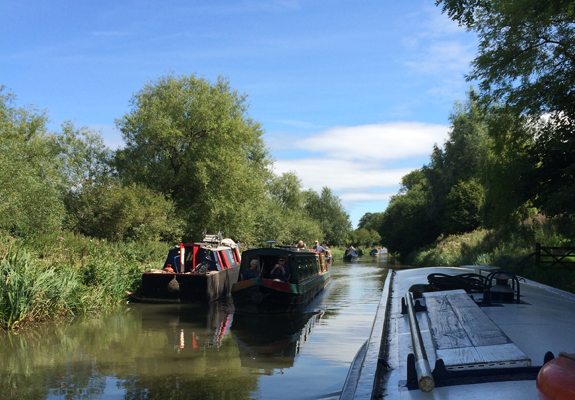Boat Safety
Boating can be an enjoyable and relaxing lifestyle, pastime or holiday and fire safety is just as important on a boat as it is in the home.
With so much water around, there can be a tendency to think that there is a reduced risk of fire. In fact boats are often in remote locations with difficult vehicle access, which may pose additional challenges for firefighters when attending any incidents. An undetected fire can quickly develop to totally destroy a boat and everything on-board.
Smoke alarms
- Fit a smoke alarm.
- These are reasonably priced in local DIY stores and are easy to fit.
- Test weekly if you live on your boat or test every time you board your boat.
Carbon monoxide
- You can’t see, feel or smell carbon monoxide but it can be fatal if you breathe it in and in an enclosed space like a boat carbon monoxide can build up to dangerous levels quickly.
- Fit a carbon monoxide (CO) alarm. Audible alarms are designed and tested for use in homes, but most are also portable and suitable for use in boats but check it is suitable for marine use. Visit our carbon monoxide advice page for further guidance on alarms.
- Keep the cabin ventilation clear to prevent a build-up.
Escape plans
- Have a fire escape plan and share it with everyone on board.
- Keep exits clear.
- Be key smart. Make sure everyone knows where the door keys are kept.
- Keep a torch handy.
- Track your location so you can tell the emergency services where you are.
- Make sure everyone knows how to close emergency valves and switches in case of fire.
Cooking
- Never leave your cooking unattended.
- Keep your cooking area clean. A build-up of grease increases the likelihood of a fire.
- If your stove does not have its own ignition use a spark device / gas lighter.
- Ensure all hobs have shut off or isolation valves.
- Don’t use barbecues on boats. Hot coals give off dangerous amounts of carbon monoxide and sparks could set the boat alight.
Smoking
- Dispose of cigarettes carefully.
- Make sure you put them right out and use a proper ashtray.
- Never smoke in bed.
Candles
- Never leave unattended.
- Make sure they are out before you go out or to bed.
- Place in a secure holder as a rocking boat or sudden jolt could tip the candle over.
Heating
- Always keep an eye on a solid fuel stove when it's lit.
- Try to avoid leaving the boat when the stove is lit.
- Dispose of embers carefully. If they are still warm they could cause a build-up of carbon monoxide or cause a fire.
- Only use the fuel recommended by the heater manufacturer.
Gas and electrics
- Have gas appliances installed and maintained regularly by a qualified engineer.
- If possible turn gas valves off before you go to bed or leave the boat.
- When buying a new gas appliance make sure that it is suitable for use on a boat.
- Unplug appliances when they’re not in use and before you leave the boat.
- Don’t overload sockets. Keep to the one plug per socket rule.
Furnishings
- Choose furnishings that carry a fire-resistant label.
- Keep fabrics and flammable items away from hobs and flues.
Maintenance and repairs
- Take care when doing repairs, keep interiors well ventilated when using adhesives, paints and spirit based products.
- Routinely check battery terminals and fuse box connections for damage or signs of over heating.
- Make sure you check and maintain your boat’s fuel, gas and electrical systems on a regular basis.
- Check the flues for coal and wood burning stoves for signs of leaks and blockages.
When refuelling
- Turn off the engine and cooking before handling any fuel and make sure there are no naked flames.
- Close windows and doors to prevent fumes entering the boat.
Stay afloat
- We recommend always wearing a lifejacket or buoyancy aid when boating. You may not be intending to end up in the water but you never know what's going to happen. Moving water, such as rivers, may look calm but may have strong currents below the surface.
